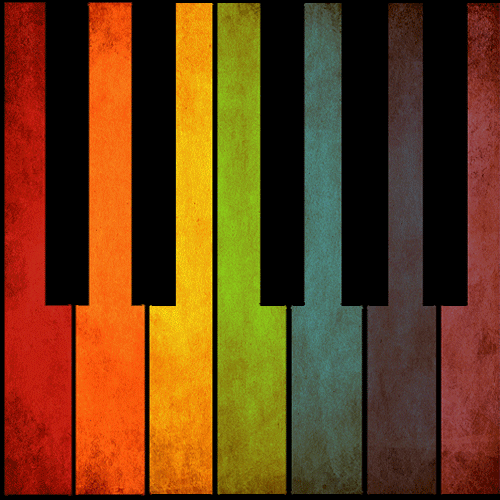Welcome to The Audio Storyteller: tips and ideas for audio producers. Subscribe to get the full list of jobs, courses and other fun stuff straight to your inbox.
Hello audio friends,
Happy to say that the Audio Storyteller is back in your inbox after a month off. I’m coming to the end of an incredible audio residency at UnionDocs… more on that in a future mailer.
For now though, I wanted to share this advice on scoring podcasts from Andy Chugg, who’s a music producer and the managing director of Gilded Audio (who accepts pitches btw). From layering SFX over music, to thinking about the tunes your characters might listen to, I found these 10 tips super helpful…
Play with scoring under moments where your characters or guests are reflecting on the past. It usually sounds better than scoring under the "present"; ie when guests / hosts / producers are in the studio.
Experiment with using music as a palate cleanser between scenes or moments - like eating ginger after sushi.
Make a playlist of instrumental music that you think might work with your story, and test the vibe by playing tracks as you read through the script.
Make sure that you’re not excessively emotionally manipulating the listener with music.
When editing music, look for the transients, ie the spikes in your DAW tracks. This will make it easier to make seamless cuts because they usually indicate drums/percussion.
Use the introduction of a new instrument in a piece of music to progress the story. For example, an introduction of a synthesizer can underscore a new character or idea in the script.
If the song you’re using doesn’t have a strong ending, you can use a touch of reverb to bring the song to a stop right where your VO ends. But don't overuse it, you'll hear this a lot in podcasts these days.
Don’t rely solely on what the SFX and music libraries hand you. Layer sound effects over music for a more immersive, punchier effect.
When using tracks from music libraries, make sure to download the stems of each piece. For instance the drums or bass of a track might sound great, while the melody is a bit tacky - working with stems gives you more control to pick and choose. If songs are in the same key and tempo / BPM, they can even be layered on top of each other to create a more sophisticated sound.
When deciding which pieces of music to use for a score, think about world-building. What would be playing in the world of your podcast / show? What would the characters listen to?
Jobs
🗽 Digital media company TheSkimm is hiring an Audio Producer to work across two existing podcasts and help launch a third. They’re looking for a news and culture junkie with experience in audio production plus experience in a newsroom. NYC based.
🗽 New York Magazine is looking for a Producer for Pivot, the tech and business show helmed by Kara Swisher and Scott Galloway. It’s a temporary three-month position.
🗽 Netflix is after a Head of Audio/Podcast Programming, Editorial & Publishing. You need 12+ years’ experience in audio/podcasting development and production. LA based.
🗽 Nickelodeon is hiring a Creative Director for kids and family podcasting. Six years’ experience in podcast development and/or media production requited.
🗽 The Vancouver-based Jar Audio is hiring both Audio Editors and Producers on a contract basis. Both roles are remote.
Workshops and events
🌙 Women in Sound is hosting Immersive Sound Design for Virtual Worlds, running on three consecutive Tuesdays starting on 13 July. Led by sound artist Deirdre Morrison, the workshop is for women-identifying, trans, and non-binary artists and has a sliding scale of $70 - $100. You’ll learn how to build adaptive, sonic environments for virtual worlds. (I took an electronic music course through Women in Sound earlier this year; they’re a brilliant org.)
🌙 Podthon, the virtual podcast summit which highlights the expertise of podcasters of colour, is happening on 17 and 18 July. Keynote speakers are Juleyka Lantigua Williams and Michele Cobb.
🌙 BeYourChange is offering a few audio editing webinars to purchase, including Sound Design 101, Izotope 101, and Pro Tools 101.
🌙 Applications are open for the Salt Graduate Certificate in Documentary Studies — the deadline’s 13 August. Info about the course is here; apply here. Salt also runs a number of audio-related intensives, but most of them are now wait list.
What I’m listening to
🎧 James Kim and Brooke Iskra’s new award-wining short fiction Vermont Ave is a beautifully immersive listen. It’s made using binaural recording, which Nick Quah writes about here.
🎧 Katie Semro released her poignant podcast about motherhood, Mother Mine. Katie was kind enough to ask me to contribute to the show: this episode is about my own relationship with my mum. (Katie spoke to me about crowdfunding for the project here).
🎧 And finally, I’m really enjoying Axel Kacoutié’s series of sound poetry for The Heart.
Thanks for reading, audio storytellers! If you enjoyed it, share with a friend or coworker. (They can sign up here.) As always, hit me up on Twitter or email with what you’re making or listening to.




